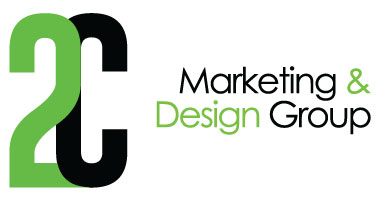How to be Honest in Youth Enrollment Marketing
If you own or run a program that enrolls children, you are in the trust business. Child care, dance, gymnastics, charter school, after-school – it doesn’t matter.
The greatest program with all the latest bells and whistles won’t get enrollments without the trust of parents.
We all know that, right?
Right.
So, why not start building that trust with honest marketing?
What IS Honest Marketing?
There was a time when marketing and advertising were considered somewhat deceptive. Business owners often assumed a different persona to spin their service or product in to a sales pitch – and that sales pitch usually overpromised and certainly exaggerated.
At a wedding a few months ago, a friend of mine “clarified” what I do to someone as “lying for a living” because I had told them I was a marketer. I laughed it off, but that really sums up the reputation.
With the instant connectivity of the internet, social media and customer reviews have changed the game. Deceptive marketing is called out for what it is and can be ruinous for a small company.
The parents with children enrolled in your program, as well as those parents considering enrollment, are looking for authenticity.
They’re human. You’re human. Be human.
This isn’t to say you shouldn’t position your benefits toward your target audience. You just have to be honest about it.
How to be Honest in Your Marketing
1) A good place to start is with your program’s mission statement. This is assuming your mission statement is something other than “We’re here to take as much money from you as possible so the owner can retire early,” btw.
Assuming it’s something involving “helping your child reach their fullest potential as a dancer” or “inspiring a lifelong love of learning,” we can use that as the core of our marketing (and everything else, for that matter).
The result on your messaging should follow something like this:
This is what we’re here to do. This is why we’re the best at doing it. This is why you can believe that we’re the best.
2) Don’t overpromise or oversell. Say what you do and what can be expected. Then verify those facts with parent testimonials or statistics (i.e. “X amount of our students have gone on to get gymnastics scholarships”).
Do what you say you do. Don’t advertise a “green program” if all you have is a fish tank at your child care center.
3) Own your mistakes by being transparent. The truth will come out either way, so why not address it head on?
In 2015, the restaurant chain Chipotle dealt with an E. Coli outbreak that could have ruined the company had they tried to deny or downplay the situation. Instead, they openly communicated the steps they were taking to manage the outbreak by closing locations and instituting new safety measures.
I realize that’s a pretty extreme example, but it illustrates the power of honesty and transparency extremely well.
4) Don’t do dishonest things.
I know. This is implied. Still…
If your SEO person wants you to pay people overseas to post fake reviews on YELP or GOOGLE, don’t do it. If you find a great image to use in your next campaign but don’t want to pay the usage rights, find another image.
Aside from being unlawful, activities like this are completely under-handed and will be noticed, called out, and potentially ruin your reputation.
I think I was around 25-years-old when I figured out a simple fact that I still try to live by. Here it is:
If you don’t lie, you can’t get caught.
Think about it.
The Reward of Honest Marketing is Two-Fold
Not only will completely honest and authentic marketing build trust in your program, it may also serve as a differentiator.
Again, the internet has changed the way parents make decisions about enrolling in your program. If your immediate competition is screaming their overinflated selling points from the rooftop, you can easily be the refreshing change parents are seeking.
Be known as the place that does what they say and handles their affairs like real people.
Parents trust that place.
Can you be more honest with your marketing? What’s your experience with building trust? We’d love to hear your stories in the comments.
Until next time – Be Well. Be Happy. Shape Minds.
- Tom

